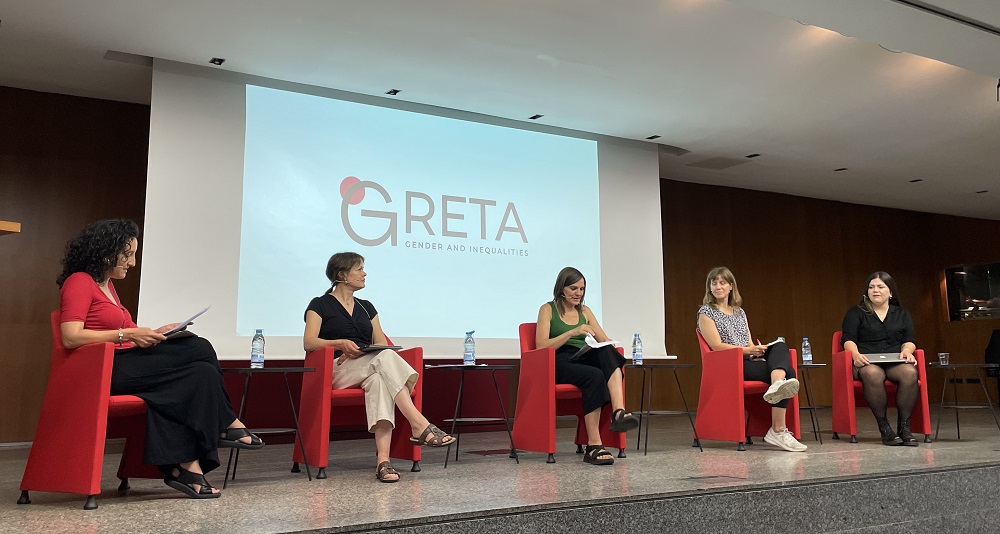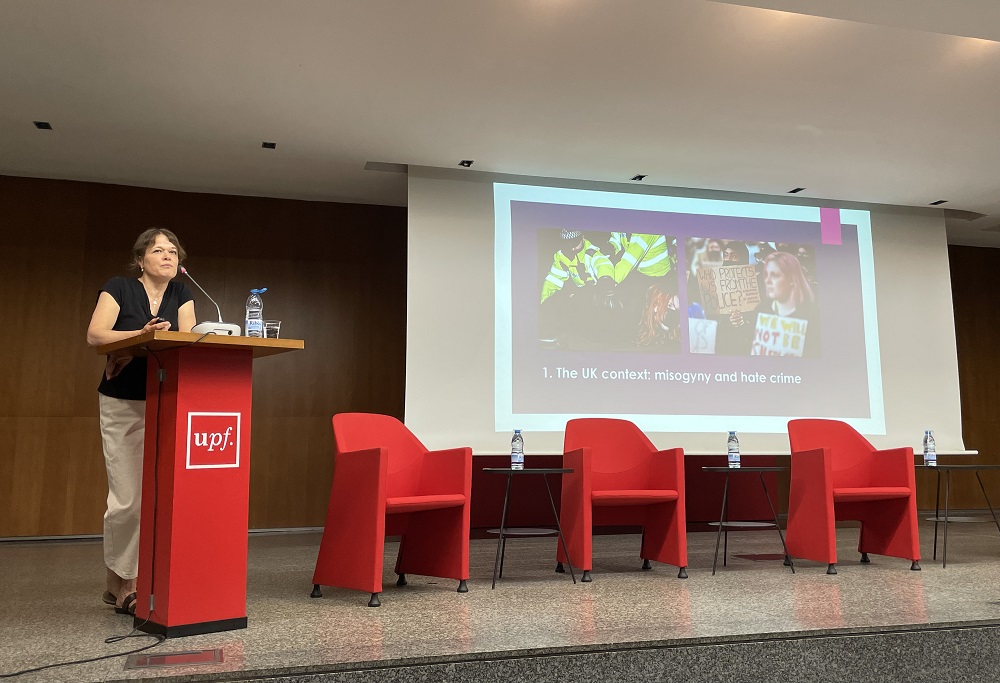Public safety in urban spaces is the focus of the debate of the GRETA research group’s first “Annual Lecture”
Public safety in urban spaces is the focus of the debate of the GRETA research group’s first “Annual Lecture”
Public safety in urban spaces is the focus of the debate of the GRETA research group’s first “Annual Lecture”
The meeting, which served to celebrate the first anniversary of the Gender and Inequalities Research Group (GRETA) of the UPF Department of Political and Social Sciences, included a lecture by Rachel Pain, a researcher at Newcastle University, and the participation of other experts, who discussed the issue from an intersectional approach

The Gender and Inequalities Research Group (GRETA) of the UPF Department of Political and Social Sciences is celebrating its first anniversary and has done so by organizing the first GRETA Annual Lecture, an academic forum to discuss one of the issues pertaining to its sphere of research, with the participation of renowned experts and activists in the field.
The meeting took place at midday on 20 June in the auditorium of the Ciutadella campus, presented by professor Maria Rodó-Zárate, GRETA coordinator, who welcomed those in attendance and gave the floor to the conference “Rethinking women’s public safety as care in urban spaces of hyperunsafety”, by Rachel Pain, a lecturer at Newcastle University (United Kingdom). Professor Pain, who presented at UPF the results of her work on public urban parks as unsafe spaces, is a renowned social and political geographer whose research focuses on violence, community safety, trauma and fear, including gender-based violence.
Rachel Pain presented the results of her research work on public urban parks as unsafe spaces

After the opening conference, a debate was held by three experts on the subject: First, Sara Ortiz Escalante, an town planner and a feminist linked to Col·lectiu Punt 6, who spoke about her work within the framework of this cooperative, which aims to rethink urban spaces from everyday experiences and feminist practices and theories. She asked professor Pain about the benefits of participatory action research, an approach that both have used extensively.
Second, Samantha Joeck, a research consultant specializing in gender, community participation and social geography, a PhD student in Social Anthropology and Ethnology at the École des Hautes Études en Sciences Sociales (EHESS) in Paris, contributed to the discussion through her experience with gender interactions in public spaces, and pointed out the parallels between her own research, which focuses on insecurity in public spaces in the city of Medellín (Colombia), and professor Pain’s research.
